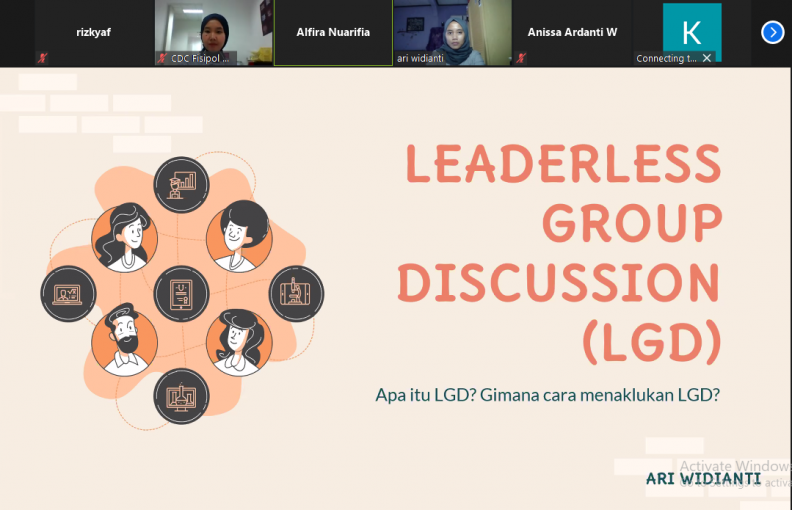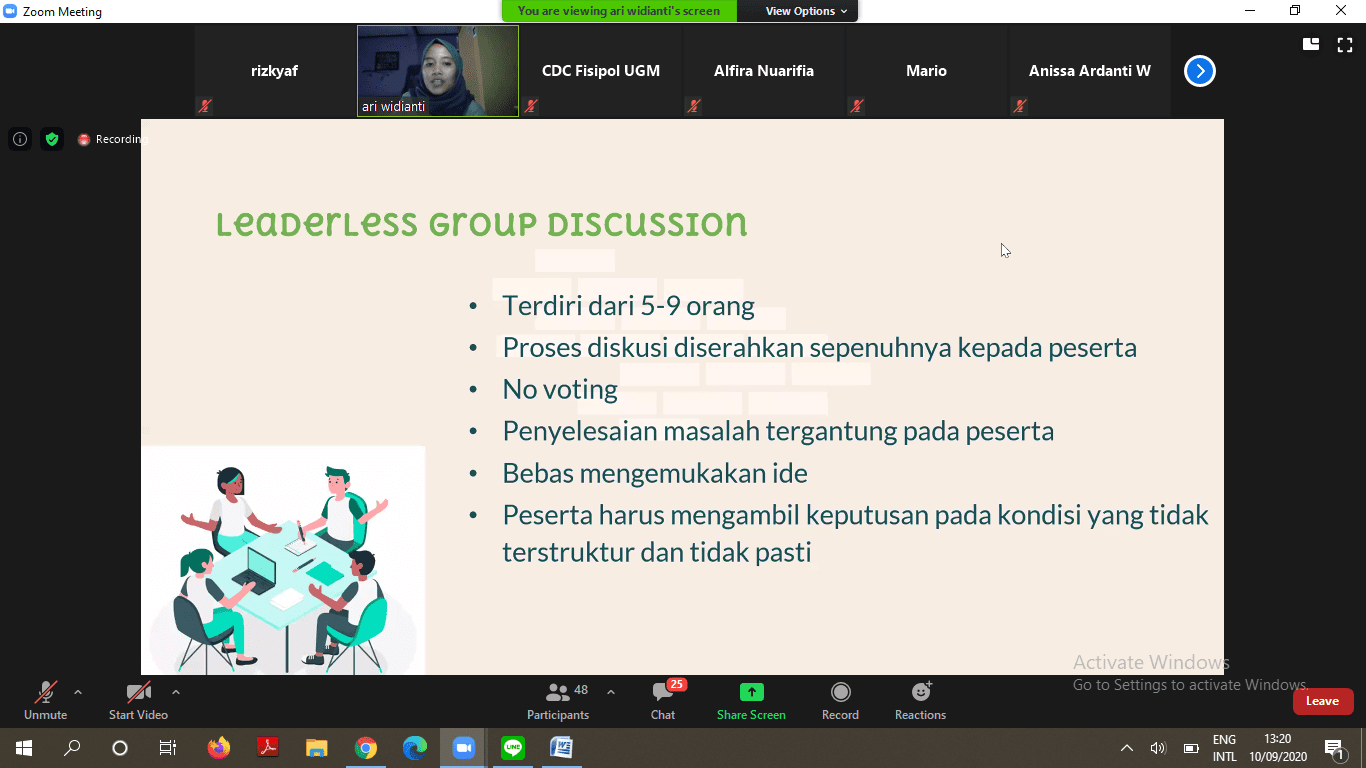
Yogyakarta, September 10th 2020—Career Development Center (CDC) Webinar of FISIPOL UGM which presented Ari Widianti, a psychologist of industry and organization as its speaker (10/9). With her background as a Career Consultant in Bestalent, Dian explained about goals, competencies that are assessed, challenges, to preparation tips of LGD.
Leaderless Group Discussion (LGD) is one of the stages of recruitment to assess leadership, creativity, adaptability, and enthusiasm of participants. Therefore, participants are expected to prepare competencies, knowledge or insights, as well as performances before participating in LGD in order to qualify for the next stage.
First thing first, Dian explained the differences between LGD and Focus Group Discussion (FGD). If the FGD is guided by a facilitator who leads the discussion, LGD takes place without appointing a leader, so that participants can show their potential freely. LGD usually is held in the stages of jobs recruitment, college entrance test, or for scholarships. Generally, LGD is starting from submitting cases to participants, then solving individual cases for ten to fifteen minutes, followed by group resolution for twenty to thirty minutes.

Quoting from the Costigan and Donahue journal (2008), Dian mentioned several competencies that were assessed during LGD. First, Leading and Deciding, how participants can take the initiative, provide direction, and draw conclusions from the discussion. Second, Supporting and Cooperating, mutual support and cooperation with group colleagues. This also includes listening to and respecting the opinions of other participants. Third, Interacting and Presenting, interact and communicate effectively, including in expressing opinions.
The fourth competency emphasizes one’s own ability to analyze and understand discussions, or Analyzing and Interpreting. Fifth, Creating and Conceptualising, creatively produce new and conceptual solutions. Sixth, Adapting and Coping, the ability to adapt and deal with conflict in the group. When they have different opinions from others, it would be better if the participants give appreciation first before arguing. The last, Organizing and Executions, the ability to organize and execute discussions from the start to drawing conclusions.
The demand to think quickly and effectively in the middle of a limited time is certainly a challenge for the participants. Dian suggested that participants read up on the latest issues before participating in LGD, especially those related to companies. Preparing insights will make participants not panic when thinking and formulating opinions.
Participants must also appear convincing, from appearance to speech. Gestures and expressions must also be controlled because they can show seriousness and enthusiasm, for example through the eyes or body movements.
Dian also added that it is not uncommon for the participants to dominate too much, thus making it difficult for other participants for stating an opinion. When trapped in this situation, other participants can politely interrupt their arguments, for example starting by reminding them of a limited time then asking for opportunities to argue. Participants must understand the situation and arrange the delivery time properly. Do not be too dominating and seize other participants’ opportunities to get involved.
“Talking too much doesn’t guarantee good grades. If there is a lot of talk but does not have a good quality, it could be a negative point,” Dian said. If participants respect the existence and opinions of others, they are considered better.
According to Dian, these tips can be adapted from everyday life, for example, controlling emotions and listening to other people’s opinions. Participants will feel smoother in LGD when they are used to it. In addition, Dian also suggested that participants should not worry too much about the results and just focus on the discussion so that it can be maximized.
